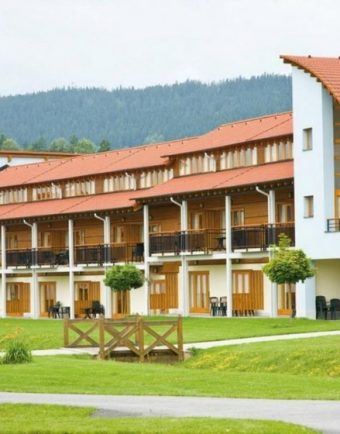

Přejít k obsahu | Přejít k hlavnímu menu | Přejít k vyhledávání

The British metropolis will be able to monitor every step of its citizens in the near future and to predict others. It will know more about every individual than they know about themselves. Is the dystopian scenario of Orwellian dimension approaching? With Brexit there was one black scenario of a
The British metropolis will be able to monitor every step of its citizens in the near future and to predict others. It will know more about every individual than they know about themselves. Is the dystopian scenario of Orwellian dimension approaching? With Brexit there was one black scenario of a great departure going from bad to worse, but the next one, there is no need toworry, on the contrary.
London City Hall has introduced its vision of a modern city that has set out to overcome major challenges: by 2030, more than 1.5 million newcomers to operate in the city, 640,000 respectively new jobs, 800,000 living spaces and 600,000 increase in urban transport will be required. What kind of politician would take on something like that?

The London City Hall is well aware of the seriousness and complexity of these issues, and for that purpose has created a strategic urban plan, which incorporates the concept of “smart technologies” into an overall possibility to solve the problem. The industrial revolution is a reality and brings with it fundamental changes that will affect each of us.
This is evidenced by the words of Vice President of Development and Innovation at Imperial College London, Professor David Gann: “The rapid growth in mobile Internet applications, the Internet of Things, the possibilities of working with remote process resources, and configured information from collected data offers new economic opportunities, of life. Data collection and analysis is a new form of infrastructure, and London is the ideal place for its implementation and development. Not exploiting the potential of this opportunity could shunt us down the second track.”
Do you remember Trump’s triumph in the past presidential election? Big Victory for Big Boy. But in the shadow of all this was the collaboration of his team with a team of data analysts who managed to create a manipulative tool in their collected user data that greatly influenced public opinion. On a similar footing, London now wants to build its Smart City vision. Fortunately, however, it wants to do it fairly and transparently.

How can we best meet the demands of the population if we do not know what those requirements are? So we simply ask them. Or even better – let us take part in the changes. With smart phones, every London citizen will now be able to send up-to-date information and suggestions for changes to the council through the city app. All of this information will then be collected in a central database. A critical question arises: “Will the data not be misused for private purposes?” And the answer is, “It will not.” All information will be safely stored in publicly accessible and legally binding databases.
Thanks to data collection, it is now possible to identify current shortcomings and to adjust them immediately. So how does it work on the practical side? Consider, for example, public transport. It will no longer be necessary to correct it 24/7, as the information is now collected and processed through sensors and public cameras in real time. This means that the individual parts of the infrastructure controlled by the pre-set procedures separately provide the normal traffic and, in the event of anomalies or danger, warn the relevant human staff. The same applies to automatic reporting of full public waste bins or even irrigation of public parks. It all works on this principle. As simple as when the coffee machine’s technical announcement comes ‘’out of cups’’.

“London leads the way in Europe in engaging with smart technology to run the city. As is typical of the British, they are going with a cooler head than is customary in the Arab world. They are thinking and planning more, then choosing the right technologies. I am curious about how public involvement will work,” concludes Jiří Konečný, who leads the agenda of technological digitization of the Czech Republic and ELKO EP, one of the European leaders in the field of smart cities, houses, hotels and offices.